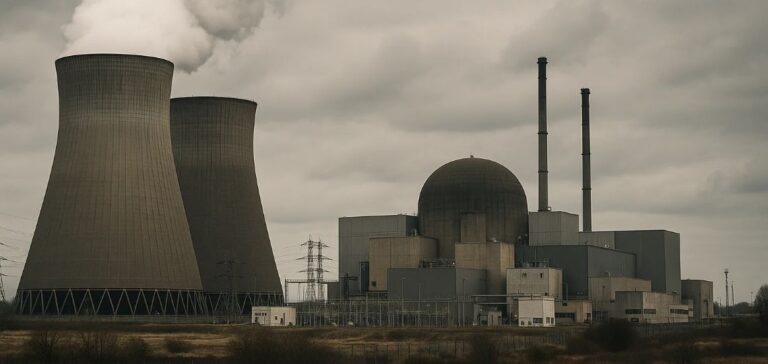Holtec International has confirmed it has submitted its final response to Great British Nuclear (GBN), the public body tasked with overseeing the United Kingdom’s nuclear strategy, in the context of the selection process for small modular reactor (SMR) technologies. This follows similar submissions from GE Hitachi Nuclear Energy and Rolls-Royce SMR, the other shortlisted bidders for this phase. GBN initiated this programme to support the development of new reactors on sites it owns in Wylfa, North Wales, and Oldbury, Gloucestershire.
Three technologies to be selected
The selection process began after an initial shortlist of six companies was narrowed to four finalists, which also includes Westinghouse Electric Company. In February, these companies were invited to submit their final tenders. GBN plans to select up to three technologies for large-scale deployment on one or more sites. A final investment decision is expected by 2029.
Holtec has been developing its SMR model since 2011. The SMR-300, based on pressurised water reactor technology, is designed to deliver approximately 300 MW of electricity or 1,050 MW of thermal power for industrial use. The company stated that the latest design includes forced flow capability overlaid on gravity-driven flow in the primary system, aimed at enhancing thermal performance.
UK manufacturing footprint planned
In September last year, Holtec selected South Yorkshire as the preferred location for a factory intended to produce SMR components for the UK, Europe and the Middle East. According to the company, around 70% of materials, components and services will be sourced from the UK, representing a significant boost for local supply chains.
Holtec is also planning to construct the first two SMR-300 units at the existing Palisades nuclear site in Michigan, United States. The construction permit application is scheduled for 2026, with operations targeted to begin in 2030, pending regulatory approvals.
International industrial cooperation
The company noted that the experience gained from the US deployment would directly benefit the UK. The SMR-300 is also being deployed in India and Ukraine, positioning the UK as a strategic participant in a global industrial coalition. Holtec has outlined plans for up to 5 GWe of SMR-based nuclear generation capacity in the UK by 2050.
Gareth Thomas, Director of Holtec Britain, stated that the company has established partnerships, including with Hyundai Engineering & Construction Co Ltd and Mitsubishi Electric, to support long-term economic development in the UK.






















